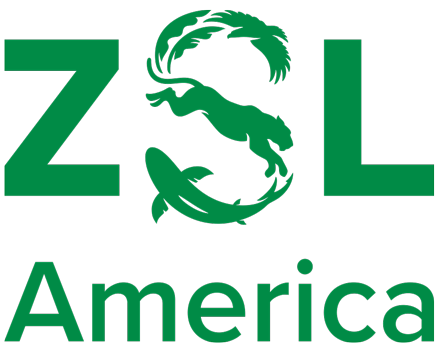ZSL America, Inc. works closely with the Zoological Society of London on projects which are creating significant change for the future of species across the globe, creating a world where wildlife thrives.
Areas which have previously been supported by ZSL America, Inc. are included below.
ZSL America, Inc. is grateful to have created impact through the generous support of our donors.
Illegal Wildlife Trade
The current level of poaching is devastating wildlife populations at rates never previously witnessed. 30,000 elephants are killed in Africa every year. 3 rhinoceroses are killed every day. A pangolin is taking from the wild every five minutes. We risk future generations living in a world deprived of some of its most iconic species. The illegal wildlife trade is worth $20 billion annually and is the fourth most lucrative criminal network, driving instability with the poorest often the most affected.
ZSL teams are dedicated to protecting wildlife from this barbaric trade on a global scale. ZSL works closely with Governments, non-Government organizations, the private sector and local community members to implement true change.
The Snowdon Aviary at ZSL London Zoo
Re-development of the Snowdon Aviary, a Grade II* heritage listed building and a structure of considerable architectural and cultural significance, originally conceived by Lord Snowdon, is underway.
A key pillar of the Snowdon project is the implementation of engagement opportunities with underserved groups, ensuring that all people have an opportunity to connect with nature. Education programs form a crucial pillar of this project with dedicated learning spaces, apprenticeships, work placements and events.
The new exhibit will house ZSL’s troop of eastern black and white colobus monkeys (Colobus guereza), serving as ambassadors for their wild cousins.
The new habitat will contain 15 large trees, specially selected with the needs
of the colobus monkeys in mind. Gleditsia spp., Tetradium spp., Liriodendron spp. and Pterocarya spp. providing the perfect height with suitably flexible branches for the monkeys to leap through, as well as being some of the few species that the monkeys won’t eat!
Giraffes at London Zoo
Development of an in-zoo welfare advancement programme to assess and improve the welfare of giraffe and contribute towards their preservation.
Across Africa giraffe populations are in peril. In 2016, IUCN assessed their conservation status, showing severe population decline of 30% since 1980. Furthermore, four recognised subspecies were assessed as Critically Endangered or Endangered.
Given the threats faced by wild populations, good ex situ (zoo) management of giraffe will be ever more critical for future protection and preservation of the species. Proactive effort is needed to establish healthy, genetically sustainable, behaviourally, and reproductively competent ex situ populations.
Studying activity budgets and physical health parameters (foot health and BCS) of zoo giraffe contributes to the understanding of their lives and enhances individual quality of life. Understanding enclosure resource use enables improved enclosure design and provision of care. Having a full insight of average time budgets of all individuals is essential to make evidence-based alternations to improve zoo giraffe care and welfare.
Great Apes at London Zoo
As we face the Anthropocene extinction, great apes are threatened (Endangered /Critically Endangered IUCN Red List). As humans work to combat this trend, appropriate research on every aspect of the lives of animals is vital. Great apes are held at ZSL for conservation education, to generate public awareness regarding the issues faced and to advance knowledge on the species.
The ZSL research programme works to improve welfare of both ex situ and in situ animals with lessons learnt from zoo animals translated to benefit wild counterparts. This model for low-cost, in house research is shared within the zoo community, to help other zoos to study their great ape behaviour and improve care and welfare, contributing towards the ongoing protection and preservation of the species.
Given the threats faced by wild populations, good zoo management of apes is ever more critical for future protection and preservation of the species. Studying social interactions of zoo great apes contributes to the understanding of group dynamics and enhances individual quality of life. Understanding enclosure resource use enables improved enclosure design and provision of care. Having a full insight of average time budgets of all individuals is essential to make evidence-based alternations to improve zoo great ape care and welfare.
EDGE of Existence
ZSL’s EDGE of Existence program highlights and protects some of the most unique species on the planet which are on the verge of extinction. These weird and wonderful species are Evolutionarily Distinct and Globally Endangered, representing a unique and irreplaceable part of the world’s biodiversity.
This ZSL program has a key focus on driving and nurturing the next generation of conservation leaders, supporting aspiring in-country scientists through ZSL’s EDGE Fellowship program which offers financial, institution and logistical support by ZSL. This strategy will significantly benefit these unique EDGE species in the wild, creating robust conservation strategies supported by ZSL expertise, and nurturing conservation leaders of the future.
Darwin frogs in Patagonian Chile
Southern Darwin’s frogs (Rhinoderma darwinii) are threatened with extinction. They are unique: the male broods its tadpoles inside its vocal sac. This project looked at practical solutions aimed to reduce the destructive effects of habitat loss on the Northern and Southern Darwin’s frogs (Rhinoderma rufum and R. darwinii) in Chilean Patagonia, caused by human activities such as commercial logging, while also gaining information about disease ecology to inform further in situ disease mitigation.

